If you follow the world of board gaming you are probably heard of Imhotep. It was nominated for the Spiel de Jahres award for 2016, which is widely considered the most prestigious endowment that can be bestowed upon a board game. While it didn't win, it is a solid game that will certainly appeal to people who enjoy Euro-style boardgames, especially games in the vein of the wildly popular Settlers of Catan.
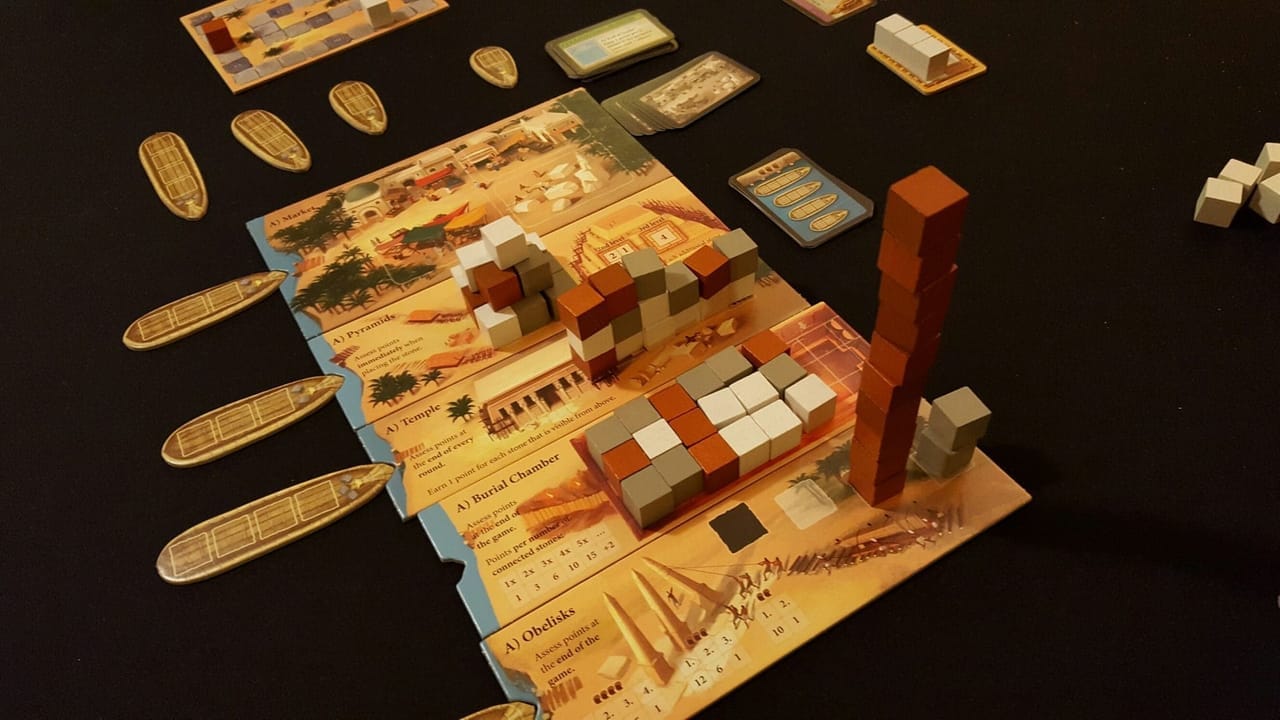
Imhotep sees 2 - 4 players competing against one another to become the most famous builder in Egypt, with the measure of their success tallied in the most board-gamey of all ways - victory points! There really isn't anything new or revolutionary in Imhotep, but nearly everything in the game is tightly designed, and it works together to form a solid, easy to learn game that is tailor made for groups of gamers who enjoy friendly competitions over direct confrontations.
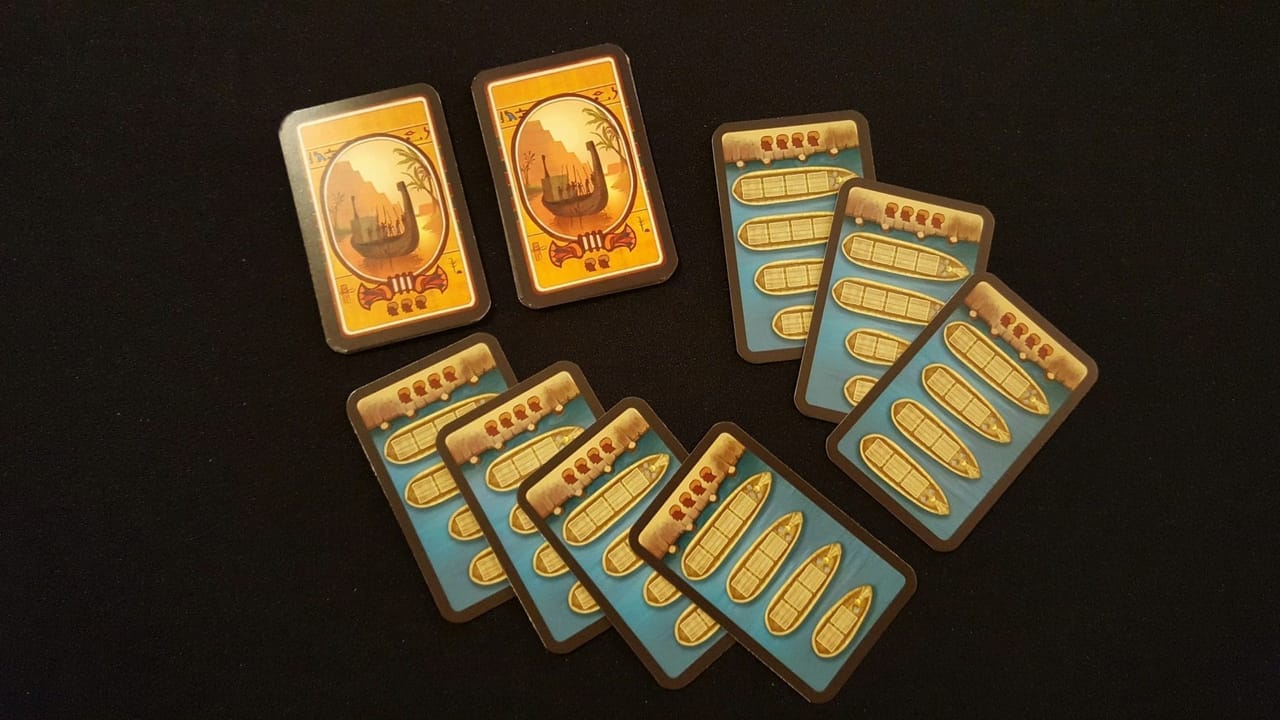
Gameplay itself is very simple in Imhotep. Players take only one action on their turn, and can choose to gather 3 stones from their quarry, place a stone on an available ship, sail a loaded ship to a destination, or use the action on a blue Market card that the player previously collected. The simple gameplay serves Imhotep very well, and it makes the game easy to teach, and keeps the game moving at a rapid pace.
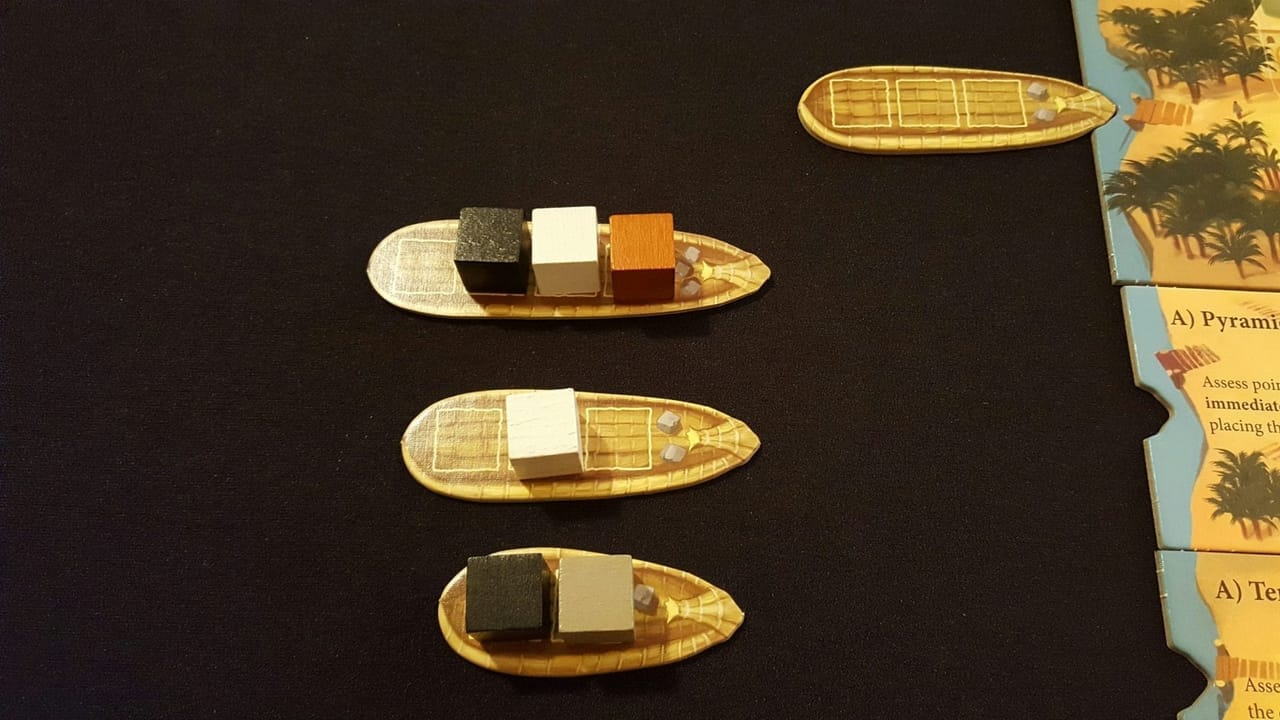
The meat of the game is in choosing which ships to load, and when and where to sail a loaded ship, as well as balancing when to load vs when to sail a ship. That may seem like a lot of loading and sailing, but your options become limited pretty quickly by the other players jockeying for the same things, and gaining an advantage in one area may end up biting you in another. Because the ships can be sailed as soon as they are loaded past a certain point, some things that look like big positives can bite you if you are unprepared. It may seem like a good strategy to load one ship to capacity with your own stones, thus blocking access to your opponents, but if your opponent then sails 'your' ship to a location that you didn't want to go to all of your work could have end up producing an undesirable result.
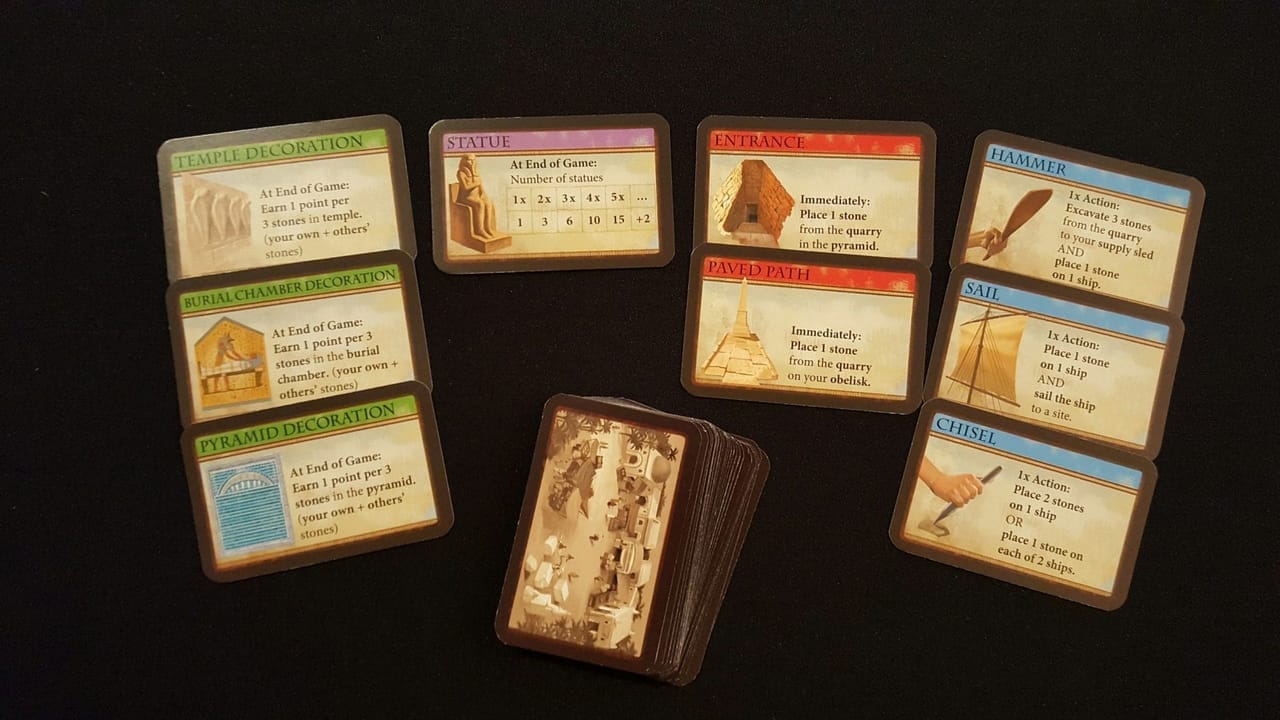
Another big thing to consider is how the ships unload once they are sailed. The ships unload from front to back, and it doesn't always behoove you to be the first to unload your blocks. Most of the locations score based on block placement and positioning so, if you time it right, you are often better off loading your blocks into specific positions on ships, assuming you can then get that ship sailed where you want it to go. Usually each player will have a different idea of which ship should go where, and so that constant fight for positioning and placement gives Imhotep a solid strategic backbone that makes the game quite a bit crunchier than it would first appear, based on the simple mechanics.
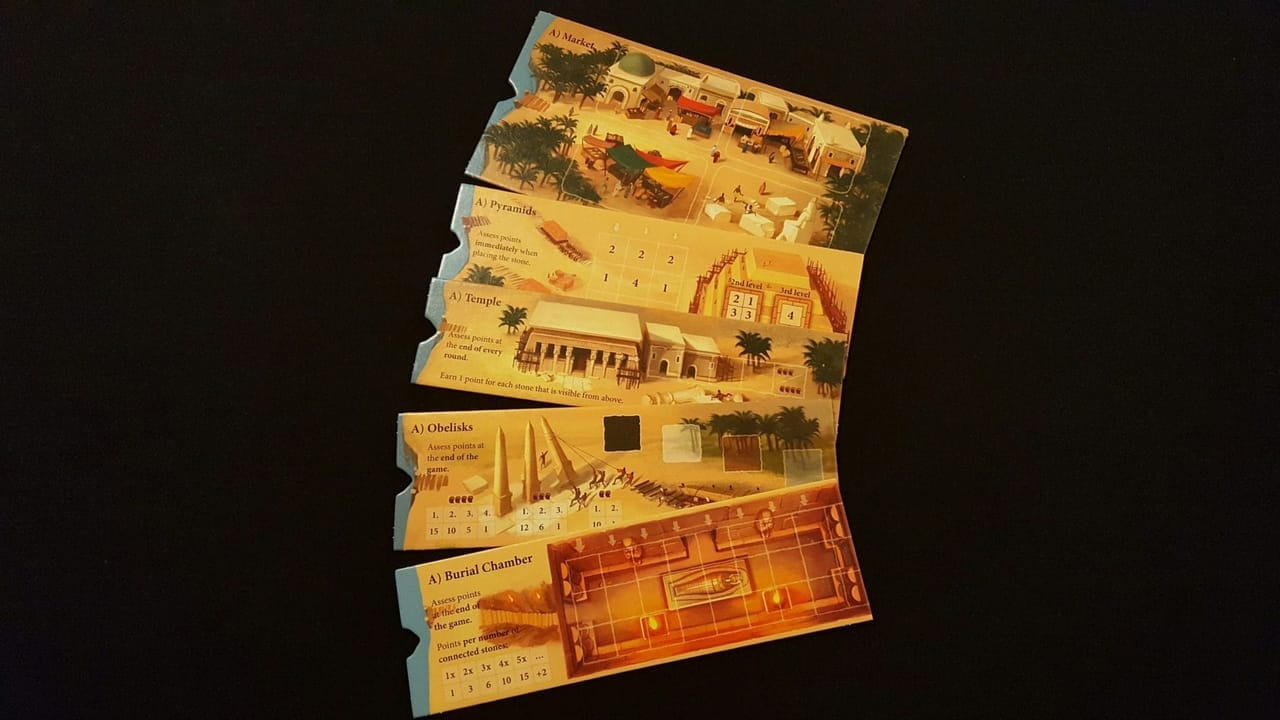
Even when you end up sending your blocks to less desirable locations, the game constantly rewards the players, whether it be with points, cards etc. Even when things don't go exactly as you planned, you are almost never left out to dry unless you aren't paying attention at all. As the game plays out, the various strategies and approaches that people are taking tend to become more obvious, but it's almost impossible to completely block an opponent without hanging yourself out to dry in the process. That leniency, combined with the ease of entry and play make Imhotep a very good family game, and a very good entry-level game for people looking to get their feet wet in hobby board gaming.
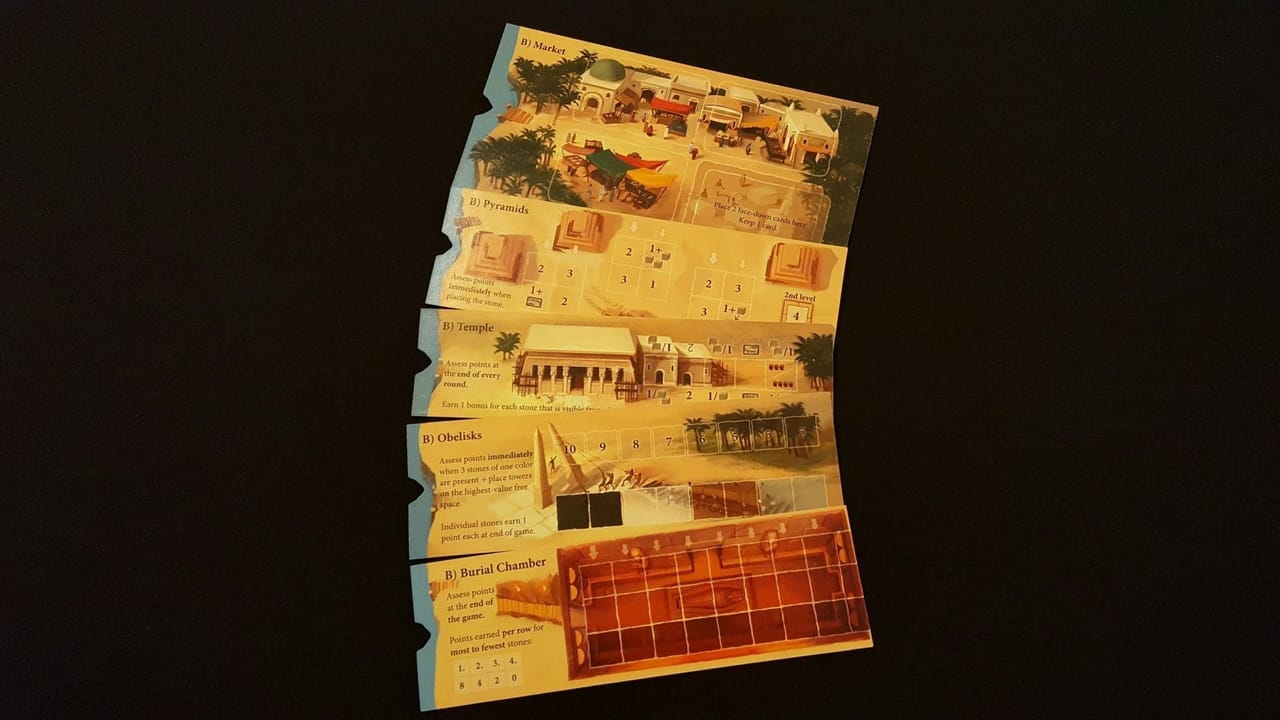
A note on player count: Imhotep plays 2 to 4 players, but it really needs 4 to shine. The game presents the same choices to players regardless of player count, but it is simply more interesting to play when more people are competing in the same space.
A note on “chrome”: Imhotep is very well made, and the art and cardboard are very nice. The wooden cubes are huge, and easy to handle, although the color choices for the different player colors are rather bland. The rules are very straightforward and the rulebook is well executed, and makes learning and teaching the game a breeze.
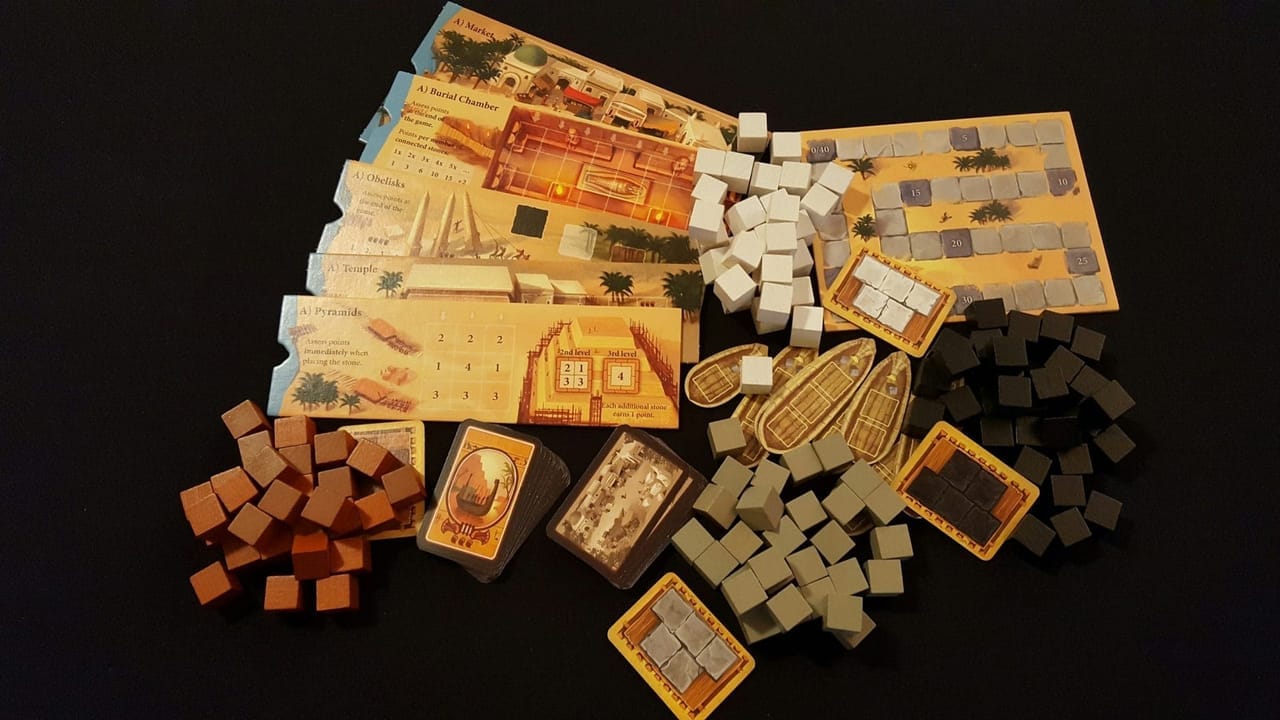
The bottom line:
Imhotep is a solid, fun game that will really appeal to people who like games like Settlers of Catan. Like many Euro-games, the theme is essentially just window dressing, but the game is mechanically sound, and provides quite a bit of crunchy strategy that is fun yet forgiving. This is a great choice for families, and get-togethers that include people who aren't big boardgamers. Imhotep has a very good amount of replayability thanks to the double sided tiles, and the ability to mix and match which sides are used each game.
Get this game if:
You enjoy Euro-games like Settlers of Catan.
You are new to hobby board games.
You prefer games that aren't directly competitive during play.
Avoid this game if:
You like to roll dice.
You prefer cooperative games.
You prefer games that tell stories.
The copy of Imhotep used for this review was provided by Thames and Kosmos.
Review Summary
Imhotep is a very good Euro-game, and will fit your group well if you have many players who don't like head to head competition. The game is very solid mechanically, and has good replay value, but don't expect it to sink its hooks into you thematically.
(Review Policy)Have a tip, or want to point out something we missed? Leave a Comment or e-mail us at tips@techraptor.net













